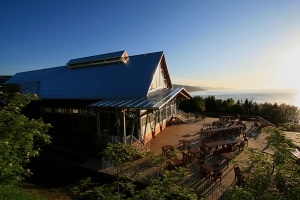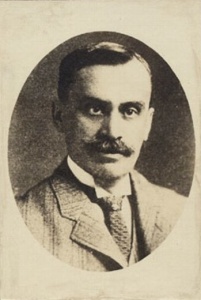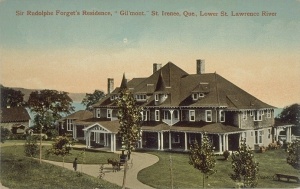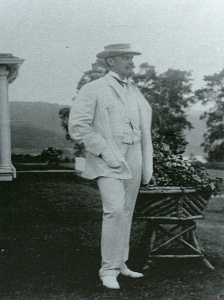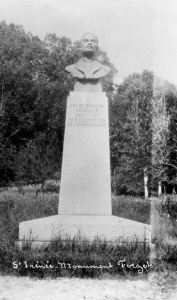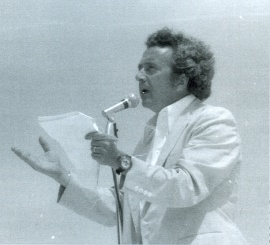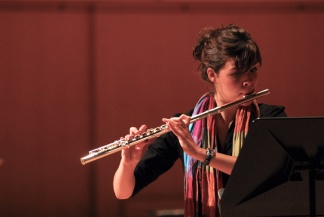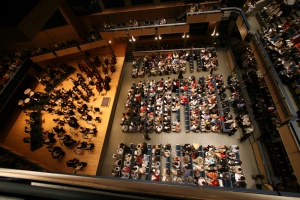The Domaine Forget in Charlevoix
par Harvey, Christian
The Domaine Forget in Saint-Irénée of the Charlevoix region has acquired the most enviable status of a cultural institution of widespread renown throughout the Province of Quebec, across Canada and overseas. The site has gained recent notoriety largely due to the business initiatives of a certain Rodolphe Forget, a public figure that left a considerable impression on Quebec’s collective memory and impacted the region’s history. In 1901, Forget had a luxurious vacation home built on an estate acquired the preceding year, so as to be able to spend the summer with his family in the picturesque Charlevoix coastal village. In so doing, Rodolphe Forget established a substantial and symbolic foundation for what would become a prestigious institution. After having served as a private estate for quite some time and then, for over more than thirty years, as an institution of learning maintained by nuns, in 1978 the estate became the site of an academy and an international classical music festival. The humble early years of the Forget estate would, with time, gradually give rise to a renowned cultural institution equipped with a set of exceptional facilities that music lovers from across the nation and around the world would come to appreciate.
Article disponible en français : Domaine Forget dans Charlevoix
The construction of an upper class summer home
From as early as 1860-1870, the Charlevoix village of Pointe-au-Pic has been the choice destination of numerous tourists, travellers and vacationers, whether it be to stay for a few days or several weeks in a local hotel. From 1900 on, additional vacationers would choose to build a summer home along the Boulevard des Falaises, which overlooks area with views of the Saint Lawrence estuary. This upper-crust clientele was mostly English speaking and came from Montreal, Toronto and New England. They came to bask in area’s natural beauty, as well as its invigorating, healthy climate.
One of the few French Canadians of the era to succeed in a world of business largely dominated by English speakers was Joseph-David-Rodolphe Forget (1861-1919). He too desired to build a vacation home in the Charlevoix area. He knew the area well, for he had held the position of administrator for the Richelieu & Ontario Navigation Company, whose fleet of ships took on passengers for a cruise on the Saguenay River. With his uncle Louis-Joseph Forget, then president of the company, Rodolphe Forget set out to restructure the corporation’s operations and oversaw the construction of the first Manoir Richelieu that was built in Pointe-au-Pic in 1899-1900. What is unusual is that Rodolphe Forget then decided to build his summer home in the little village of Saint-Irénée, This was a site usually favoured by the English-speaking cottagers, located some distance from Pointe-au-Pic.
In September of 1900, the businessman purchased farmland from local parishioners. The transaction was witnessed by his friend, judge Adolphe-Basile Routhier, who would also construct his own home in Saint-Irénée, the residence where he would spend the final years of his life. Forget quickly bought up neighbouring lots, thereby acquiring an estate of considerable acreage. In 1901, he built his main residence, which he named Gil’Mont, after his eldest son Gilles Forget, whose Shingle-style house plans were followed by the American architect Edward Maxwell. A superb stairway once lead up to the manor, but was sadly later destroyed in a fire in 1965. Linked to the Gil’Mont main house via a corridor, was a recreation hall, which included a pool, a bowling alley, a billiards room, and, for an added exotic touch, a Japanese-style salon (Tatami room). In 1978, the recreation hall would become the Domaine Forget estate’s first concert hall, before being transformed into a cafeteria in 1996. The hall would also fall victim to a fire in June of 2005.
The original Forget property included more than 10 out buildings, including an icehouse, an electric powerhouse, a laundry, a henhouse, barns, stables and an old-fashioned mill wood shop. From 1978 onwards, these buildings would all eventually be converted into practice rooms and lecture halls for classes to be given to conservatory students of the Académie du Domaine Forget. Another distinctive feature of the original Forget property was that it was landscaped with lush trees, which with time grew to imposing heights and contrasted considerably with the low-profile vegetation of the surrounding farmlands.
The story of Rodolphe Forget and his successors
Every summer, the Forget family set up residence at Gil’Mont for nearly 40 years, welcoming to the numerous public figures from the world of business and politics to the estate. From 1904 to 1917, Rudolphe Forget represented the Charlevoix region as a member of the Canadian parliament. As a public figure, he would experience a few setbacks, particularly following the attacks on his reputation that his adversaries would have published by the press, as well as a set of confrontations that occurred in the Chamber of Commons in Ottawa (NOTE 1). Forget passed away on the 19th of February of 1919. In his will, a clause specified that his successors would be required to keep the Saint-Irénée manor as a part of the family estate. And so his wife Blanche Macdonald and her four children, Thérèse, Gilles, Maurice and Jacques would carry on the tradition of spending their summers in Saint-Irénée.
For quite some time, the distressing and tumultuous stories surrounding Rodolphe Forget’s business affaires almost caused him to be completely erased from the collective memory of the Canadian community at large, except in the Charlevoix region (NOTE 2). People were more willing to remember his daughter Thérèse Forget Casgrain, who became a symbolic figure in the struggle for women to obtain the right to vote in Quebec and across Canada; or even his uncle, Louis-Joseph Forget, a much more prudent businessman who was well known for his contribution to the economic development of Montreal (NOTE 3). However, from the 1980s on, the various members of the newly-established French-speaking business class that were regulars at the Forget estate would nonetheless find in Rodolphe Forget an exemplary model of social success, as was evident in the exceptional character of his summer home estate.
The ever-changing vocation of the Forget Estate and grounds
In 1946, Rodolphe Forget’s succesors left the property to the Petites Franciscaines de Marie who would also acquire Adolphe-Basile Routhier’s former residence, thereby considerably increasing the size of the original estate in one single transaction. The religious community, whose motherhouse is located in Baie-Saint-Paul, would manage the estate for more than 30 years, using it to further its mission of offering education and hospice services. The legacy of Rodolphe Forget was largely forgotten and thereafter, the property’s reputation and heritage became one of largely regional significance. From 1946 to 1956, under the auspices of the Petites Franciscaine des Marie, the site became home to a home economics school, where young women would come to learn the fundamentals of “good housekeeping.” Then, from 1956-1959, the property housed an orphanage before becoming a regional branch of the Hospice Sainte-Anne de Baie-Saint-Paul, which specialized in caring for the mentally handicapped from 1959 to 1974.
In 1974, the religious community sold the property in its entirety to a consortium of businessmen from Baie-Saint-Paul. Following a reverse in fortunes, the consortium was required to cede the estate to their creditor, the credit union Caisse Populaire de Saint-Irénée. An unpaid mortgage loan weighed heavily on the future of this valuable heritage property, but things were about to change, for soon the estate would become a classical music mecca.
Developing Credibility in the World of Music
Building a reputation for excellence in the world of classical music is not an easy thing to do. The initial impetus and measure of credibility for establishing the academy at the Domaine Forget estate in 1977 were largely due to the efforts of Françoys Bernier (1927-1993). He trained as a musician at the Conservatoire de Québec, directed the production of the show Heure du Concert televised on Radio-Canada, served as chief executive officer of Quebec City’s symphonic orchestra (OSQ, Orchestre Symphonique de Québec) from 1960 to 1968 and founded University of Ottawa’s music department in 1969, where he oversaw the development of the various programs, as well as the selection of the professors, lecture halls and other areas to be reserved for the department’s use. Bernier was therefore very knowledgeable and had considerable experience in the arena of classical music and had all the essential qualities needed to found a summer music academy that would become well-known throughout the Charlevoix region for the quality of instruction it offered.
From as early as the 1940s, Françoys Bernier had spent time with his family in the Charlevoix region during the summer season. In 1977, he became president of the local music school (École de Musique de Charlevoix)—the institution responsible for offering musical training to the local population—and took upon himself the task of gathering a small group of individuals interested in acquiring the Domaine Forget estate. Following a long series of negotiations, the music school finally acquired the site in 1977. With the express purpose of managing the site itself, the Domaine Forget estate was incorporated as an independent organisation in 1981. The newly founded musical institution opened its doors to students in the summer of 1978, offering a modest repertoire of activities. The Quebec Cultural Affairs Ministry (Ministère des Affaires Culturelles du Québec) had stipulated that, before offering any assistance, the music school would have to demonstrate its ability to successfully establish itself as an institution of musical instruction—and naturally, it did.
The Academy and the International Music Festival
The newly established summer music academy offered advanced music students, as well as young professional musicians, further education in the form of musical workshops. Separate music workshops were established for the various classes of instruments (woodwinds, brass, etc.) and from time to time, thematic workshops were also offered (jazz, medieval music, dance, etc.). The Academy became a place where interns could meet and learn about future musical career opportunities (while testing their level of skill) as they met other musicians with whom they could form ensembles and spent time under the tutelage of renowned music instructors. The widespread recognition of the International Academy at the Forget Estate is largely due to the presence of internationally renowned music instructors such as flautist Alain Marion, violinists Pierre Amoyal and Régis Pasquier and percussionist Dale Bartlett, who began teaching at the institution from 1980 on.
Over time, the academy drew more and more instructors and students from abroad, while continuing to attract a considerable number of musicians from within the province. Thus, as of 2009, 51% of the students were coming from within the Province of Quebec, 22% from other Canadian provinces and 27% from abroad. Since it was founded, more than 12,000 students have studied music at the International Music Academy, which, its own unique way, has enabled many a young musician to start up their career.
With the arrival of students and professors at the Academy, there was a unique opportunity to start a music festival. The first concert was held on the 23rd of June in 1978 and featured Charlevoix pianist Henri Brassard. The same year, the young Quebec violinist, Angèle Dubeau was also invited to perform, although still a student at that time. The following year, Academy instructor and flautist Alain Marion performed at the festival, thereby adding a touch of prestige to the event. In 1987, the year the Sommet de la Francophonie was held, the annual music festival became official known as the Festival International du Domaine Forget. A major part of the concert program was composed of classical music pieces and included regulars, such as Régis Pasquier, Léo Brouwer, Louis Lortie, Henri Brassard, the Quebec Symphony Orchestra (OSQ), the Violons du Roy and last, but not least, Alain Marion, who would long remain a faithful participant at the Domaine Forget festival (NOTE 4). For several years now, the International Festival has widened its scope to include additional artistic genres, such as dance, jazz, and contemporary music.
The growing success of the Academy and the International Festival has been largely due to the succession of its art patrons: Françoys Bernier (1977-1993), Élise Paré-Tousignant (1993-2001), Douglas McNabney (2001-2004) and Guy Carmichael (since 2004). The resounding success of the Domaine Forget music academy and festival in the very selective world of professional classical music would never have become a reality without the hard work and continual efforts of these patrons.
Classical Music, a Fine Art
In the traditions and cultural practices of the Western world, classical music has the prestige of being recognised as a “fine art” that has well-established ties with the upper classes, especially in the world of business (NOTE 5). It was these connections that enabled the Domaine Forget estate to obtain financing and the support of a new, rising, French-speaking business class, who were not only regular patrons of the various musical events offered at the estate, but also willing to sponsor various much-needed renovations and improvements to the somewhat antiquated facilities of the institution. For after all, the estate property still bore the sumptuous hallmarks of businessman Rodolphe Forget’s unquestionable success, and this newly established affluent social class felt right at home there.
It was in 1986 that the long awaited government assistance finally arrived, with the financing for the construction of music studios and three years later, when the estate obtained an operating subsidy. The growing support from the business world was unmistakably clear in the 1990s, during the construction of a concert hall. Up until that point, concerts had, for the most part, been held in the former recreation room built by Rodolphe Forget—a site that was not ideal, as it lacked the necessary equipment and acoustics for such events. On this particular occasion, more than a million dollars was collected from wealthy donors over the period of a few months. In 1996, the opening of the 600-seat Salle Françoys-Bernier auditorium made it possible for the Forget Estate to offer a concert program in an optimal acoustical environment. The support of the business world was also felt during subsequent fund-raising campaigns intended to collect contributions for setting up a scholarship foundation and endowment fund, as well as for the ongoing improvement of the buildings. Society in the Charlevoix region does not close up shop for the fall-winter season, for the calendar is always filled musical events and concerts given by renowned Quebec artists. And there will always be the estate’s exceptional concert hall, if they decide to give a performance in the region.
A Cultural Mecca
Today, the Domaine Forget estate is, in the fullest sense of the word, a veritable heritage asset and living legacy that enjoys considerable recognition, both nationally and internationally. Since the early days of the music school, more than 750 concerts have been given there, bringing prominent musicians into the Charlevoix region and to the village of Saint-Irénée itself. Such a fortuitous opportunity would be the envy of even many a much more densely populous locality. In 2000, the site became the first institution outside of Europe to be granted the prestigious title of Cultural Centre and Historic Monument. The express purpose of this network of cultural sites is to encourage the renewal of heritage sites by adapting and transforming them into places of cultural instruction, creativity and promotion. Looking back over the years, it is obvious that the Domaine ForgeteEstate, with its impressive track record, doubtlessly more than amply fulfils the requirements for a Cultural Centre.
Christian Harvey
Historian, Centre de recherche sur l'histoire et le patrimoine de Charlevoix
NOTES
1. Jack Jedwab. «Forget, Sir Rodolphe». In the Dictionary of Canadian Biography Vol. XIV, p. 399
2. For more information see: Normand Perron et Serge Gauthier. Histoire de Charlevoix. Québec, Presses de l’Université Laval, 2000. 387 p.
3. For more information see: Paul-André Linteau. Histoire de Montréal depuis la Confédération. Montréal, Boréal, 1991. 613 p.
4. Alain Marion passed away in 1998.
5. Pierre Bourdieu. La distinction. Critique sociale du jugement. Paris, Éditions de Minuit, 1979. 672 p.
BIBLIOGRAPHY
Christian Harvey. « Le Domaine Forget. Au rythme de la musique depuis 25 ans », Revue d’histoire de Charlevoix, 43 (Juin 2003), p. 2-20.
Christian Harvey. « Rodolphe Forget. Financier retors ou villégiateur-mécène? », Revue d’histoire de Charlevoix, 44 (Octobre 2003), p. 16-18.
Jack Jedwab. «Forget, Sir Rodolphe». In the Dictionary of Canadian Biography Vol. XIV, p. 399.
Additional DocumentsSome documents require an additional plugin to be consulted
Images
-
 «Gil'mont», la résid
«Gil'mont», la résid
ence de Sir Rod... -
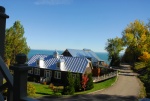 Bâtiments, Domaine Fo
Bâtiments, Domaine Fo
rget -
 Carte du comté de Ch
Carte du comté de Ch
arlevoix d'apre... -
 Carte du comté de Ch
Carte du comté de Ch
arlevoix d'apre...
-
 Concert au Domaine Fo
Concert au Domaine Fo
rget -
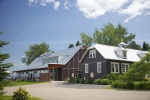 Domaine Forget à Sain
Domaine Forget à Sain
t-Irénée, 200... -
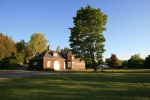 Écurie, Domaine Forge
Écurie, Domaine Forge
t -
 Escalier, Domaine For
Escalier, Domaine For
get
-
 Françoys Bernier
Françoys Bernier
-
 Gil' Mont St. Iréné
Gil' Mont St. Iréné
e les bains -
 Groupe de militaires
Groupe de militaires
au Domaine Forg... -
 Le buste de Rodolphe
Le buste de Rodolphe
Forget à Saint...
-
 Monument Forget, St.
Monument Forget, St.
Irénée P.Q. -
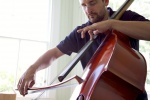 Musicien au Domaine F
Musicien au Domaine F
orget à Saint-I... -
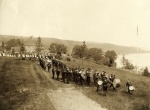 Parade militaire au D
Parade militaire au D
omaine Forget à... -
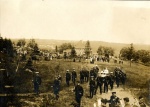 Parade militaire au D
Parade militaire au D
omaine Forget à...
-
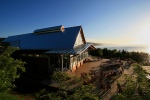 Pavillon Joseph-Roule
Pavillon Joseph-Roule
au, Domaine For... -
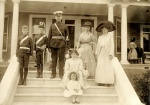 Photo de famille au D
Photo de famille au D
omaine Forget à... -
 Portes d'entrée de l
Portes d'entrée de l
a résidence "G... -
 Rodolphe Forget à son
Rodolphe Forget à son
domaine
-
 Salle Françoys-Bernie
Salle Françoys-Bernie
r, Domaine Forg... -
 Sir Joseph-David-Rodo
Sir Joseph-David-Rodo
lphe Forget (18... -
 Stage de bois, Domain
Stage de bois, Domain
e Forget -
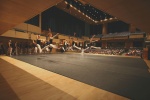 Stage de danse, Domai
Stage de danse, Domai
ne Forget

